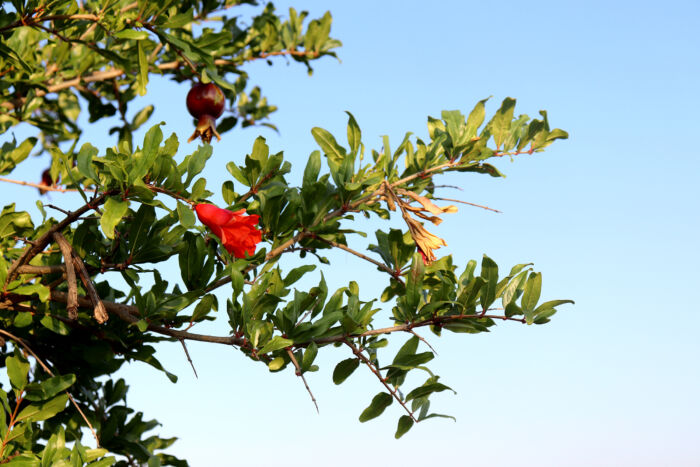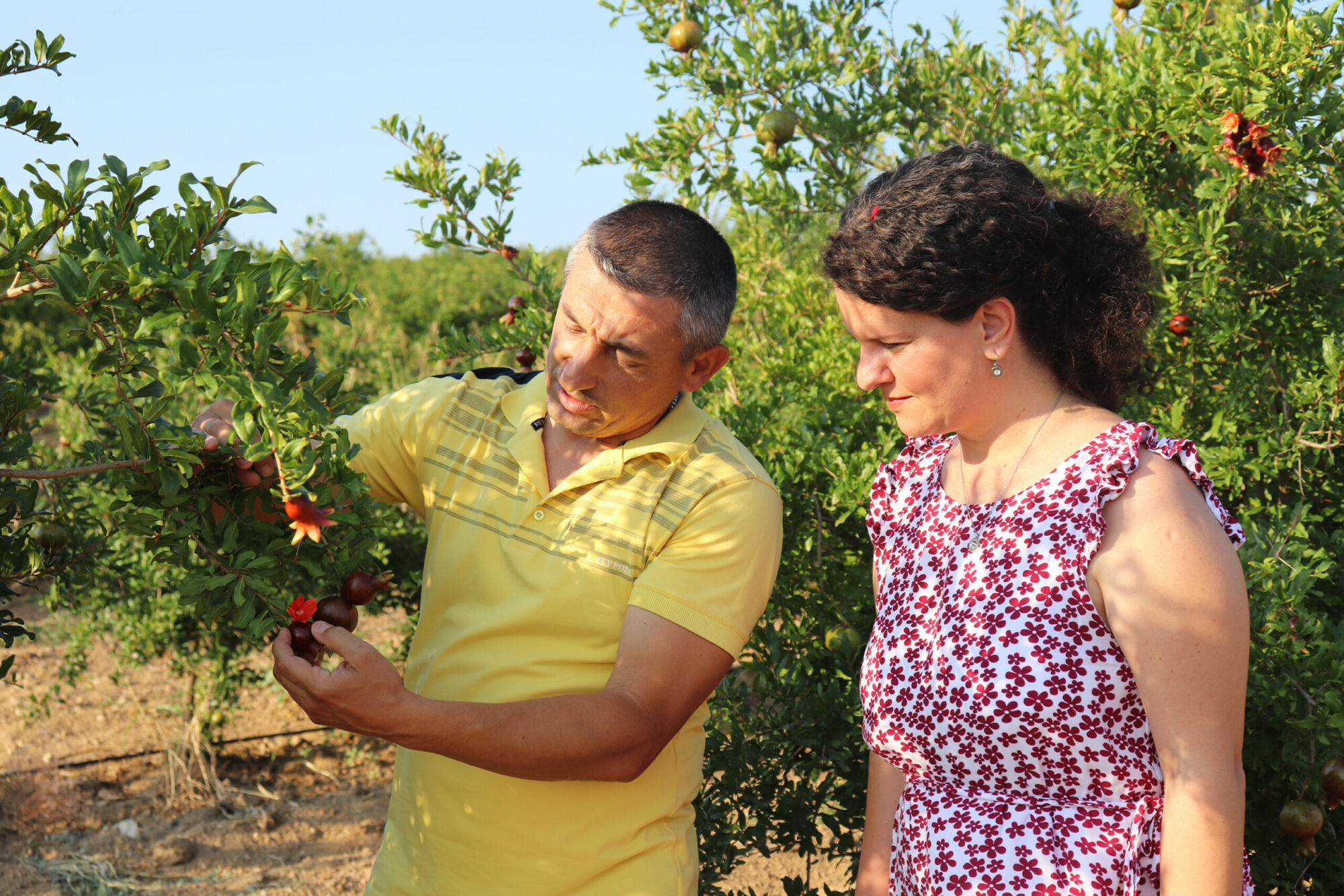“This region, the Gevgelija – Valandovo region, is ideal for cultivating this fruit. All of us in our yards have the famous pomegranate from Valandovo,” says Sanja Dagaleva.
Although usually grown as a common backyard fruit, in recent years, there has been an increased interest in the commercial production of the fruit in North Macedonia.
“Because this is the only place in the country where you can grow pomegranates and it’s a sort of a tradition to grow them, we decided to start with this business,” says Sanja.
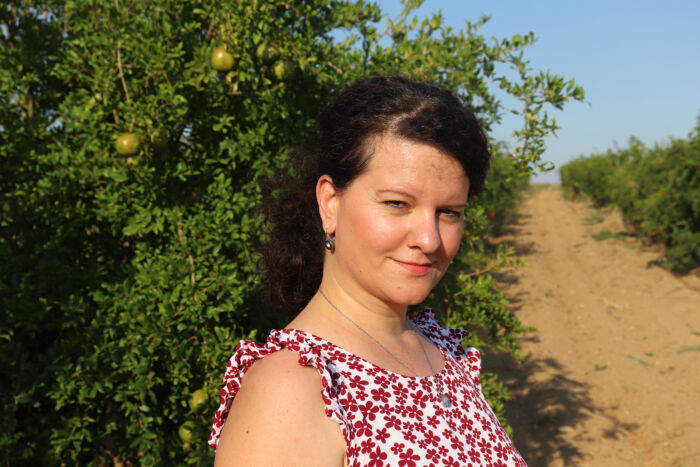
Along with her husband Valtko Dagalev, she began planting pomegranates on larger surfaces three years ago. Currently, they have 15 hectares of land under pomegranate plantations, some of it their own and some of it leased.
“The pomegranate is also very practical fruit,” says Sanja through laughter. “It’s not very delicate and soft and it’s not going to go bad after two or three days. So, it’s very convenient for longer storage. For us this was the additional incentive to start cultivating this fruit.”
The pomegranate production increase in North Macedonia is largely in response to the pomegranate being consumed not only as a fresh fruit, but also as juice or as a freshly prepared product.
Yet pomegranate famers have been facing difficulties with the buyout of their yields for years as middlemen are taking advantage of the poorly organized market and lack of purchasing centres. At certain point, farmers have even been forced to throw away large quantities of the pomegranates with lower quality.
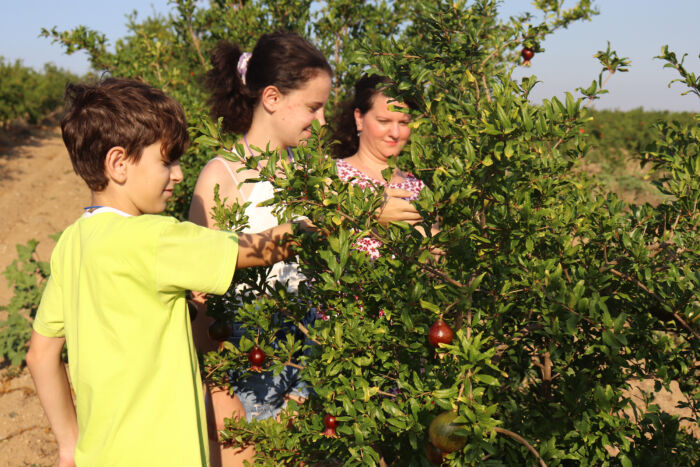
Now, working with local farmers and the company Organik Nar, We Effect’s partner organization the Rural Development Network of North Macedonia (RDN of NM) is introducing a business model that enables farmers better access to markets.
Through our IISEE project farmers have the opportunity to get acquainted with the benefits of the contractual production and build trust with the buyer Organik Nar – a pomegranate processing company.
“For the first time we are doing contractual production. We had a good yield, and it all went to Organik Nar for processing,” says Vlatko adding that the advantage of the contractual production is that now they have a market. “We are able to sell the second-class pomegranates that we otherwise couldn’t sell on the market as pomegranate for consumption.”
Due to the lower quality, the second-class pomegranates can only be processed for juice, and farmers are happy that a company is now buying out their second-class production for processing on contractual basis.
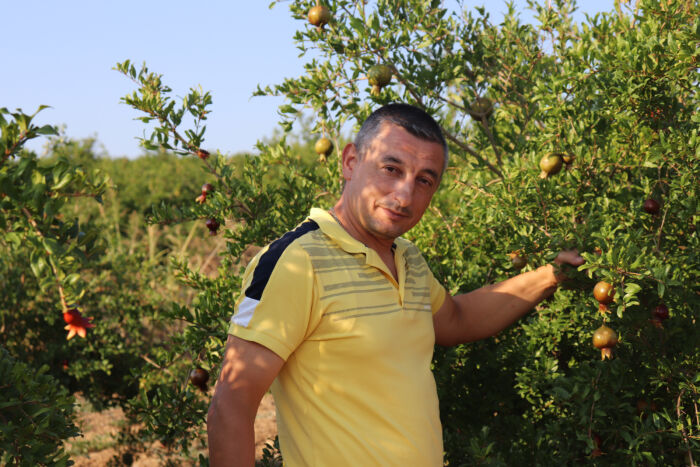
So far, we haven’t thrown away a single pomegranate. It all goes for juice production.
Sanja is happy with the outcome and the price. “With this type of purchase, we expect greater income and improved livelihood. The company is flexible and there is a space for agreement. The price depends on the quality of the pomegranates, which in turn depends on the year and on the conditions throughout the year.”
In this context, Vlatko admits that the climate change creates a lot of problems. “The pomegranate needs both sun and rain, but in moderate amounts. Last year, just before the harvest there was a lot of rain which caused the pomegranates to crack up and to burst open. Once that happens you cannot sell the fruit as first class, it can only go for processing.”
Sanja and Vlatko are just starting with greater production of pomegranates, and they still don’t have any protection nets against hailstorms. But this is definitely an item on their list of production tools and necessities to be purchased once they can afford the investment.
For the time being they managed to purchase a drip system for irrigation which makes one aspect of their work much easier.
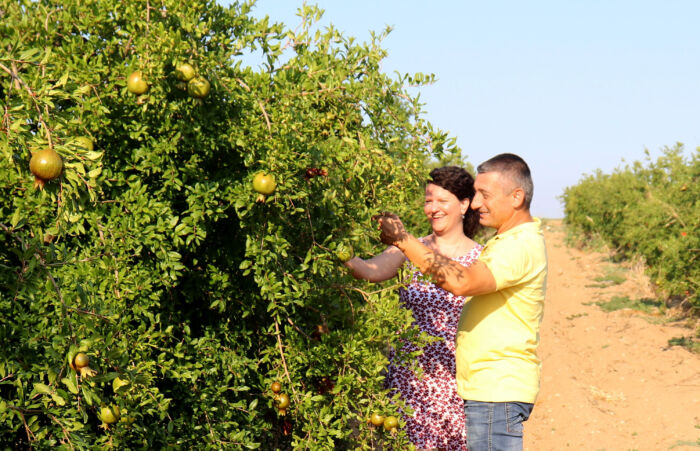
Yet, despite of all the difficulties they face with their new pomegranate business, including lack of seasonal workers, Sanja and Vlatko are forward thinking and have big plans for the future.
“We plan to increase our pomegranate production, but we need a cooler where the fruits can be stored over a longer period of time. It means that we would not be forced to sell our entire yield of pomegranates at once, but we could wait to fetch a higher price,” says Sanja.
Pomegranate production presents a real opportunity for entrepreneurship for the farmers in the south of the country which can help them provide better for themselves and their families.
Sanja and Vlatko Daglevi are certainly one of those seizing the moment. They are working hard to build a successful family business for themselves and their two children, Mila (13) and Kostadin (12), whom they hope will continue in their footsteps.
